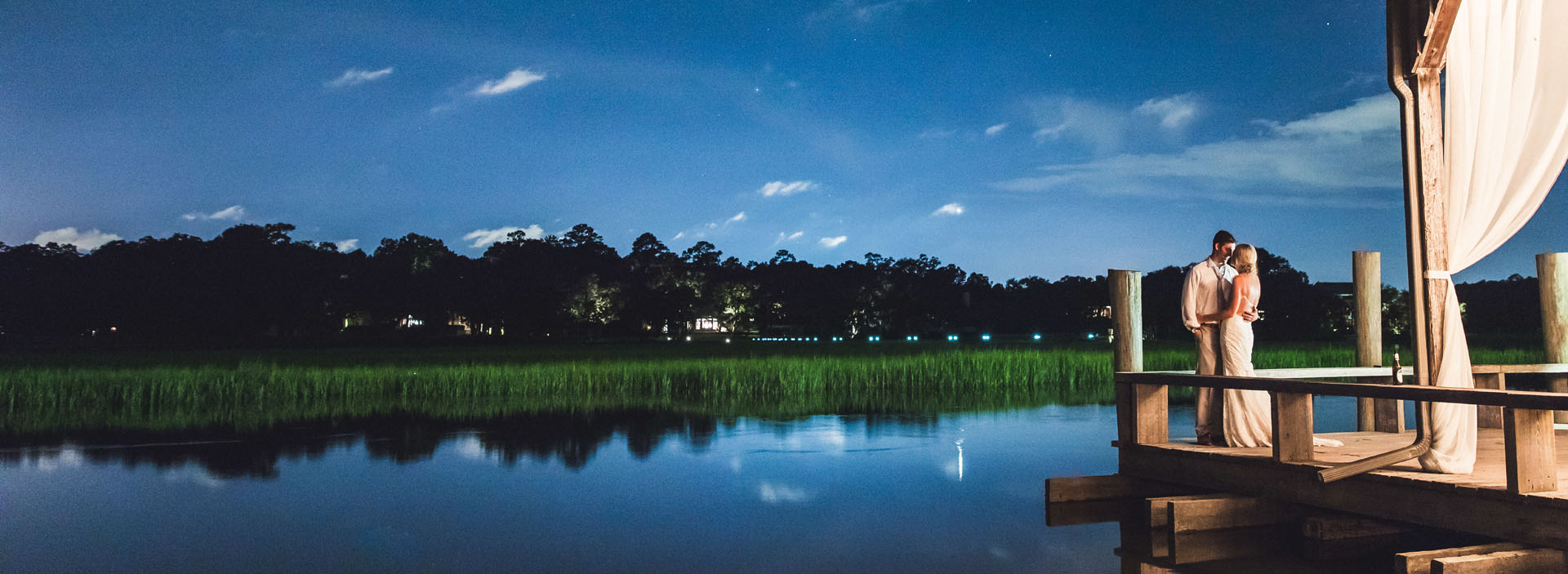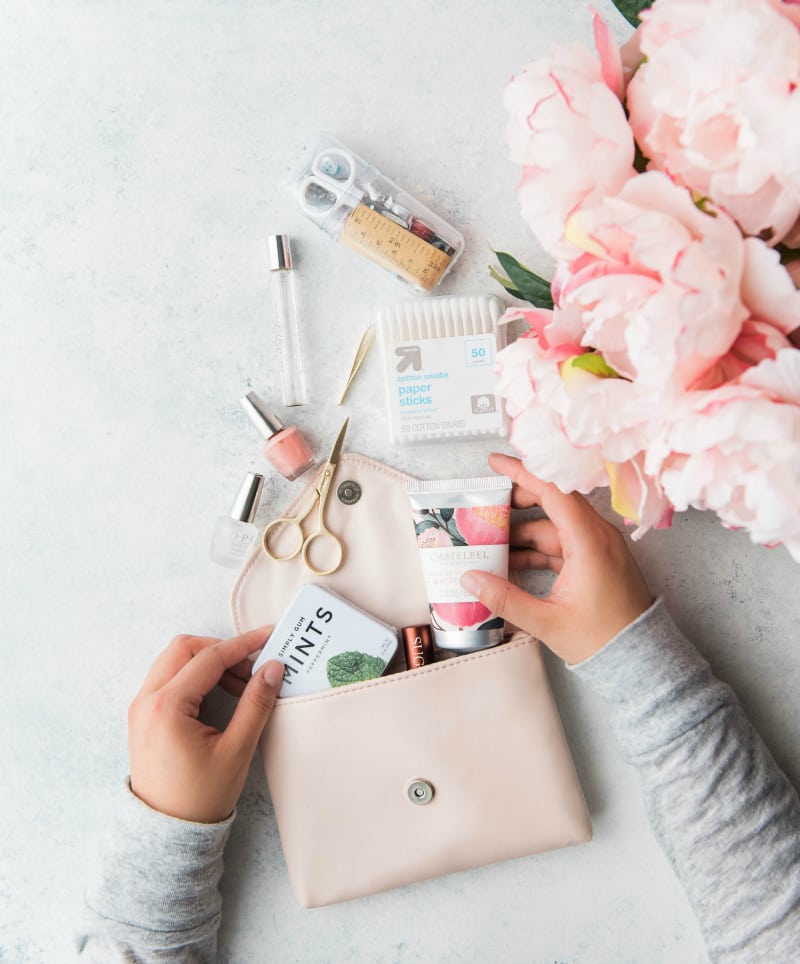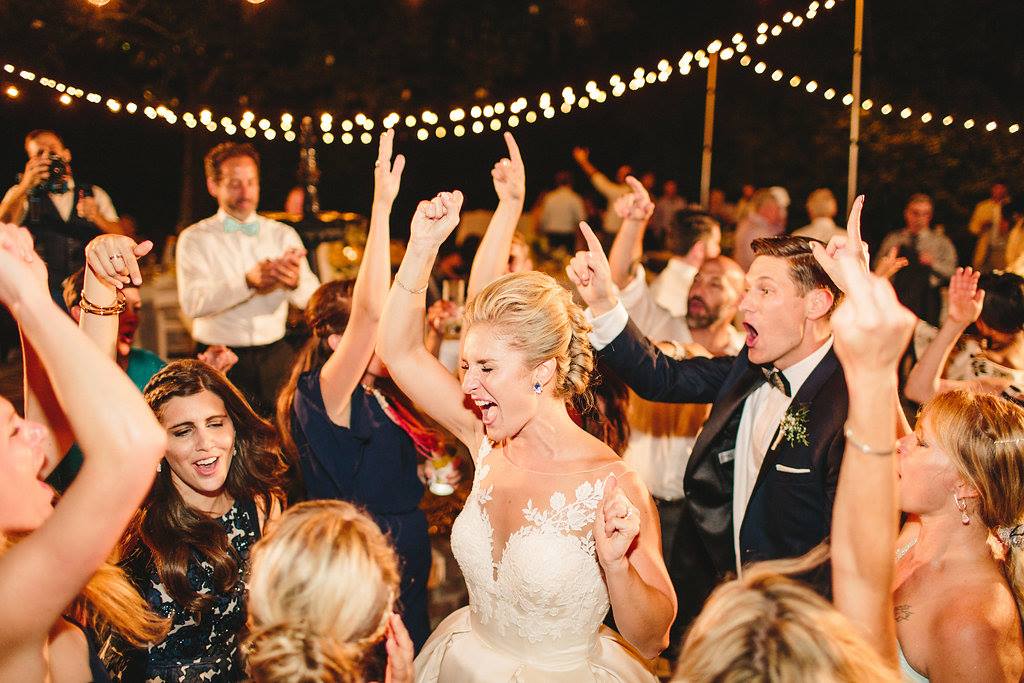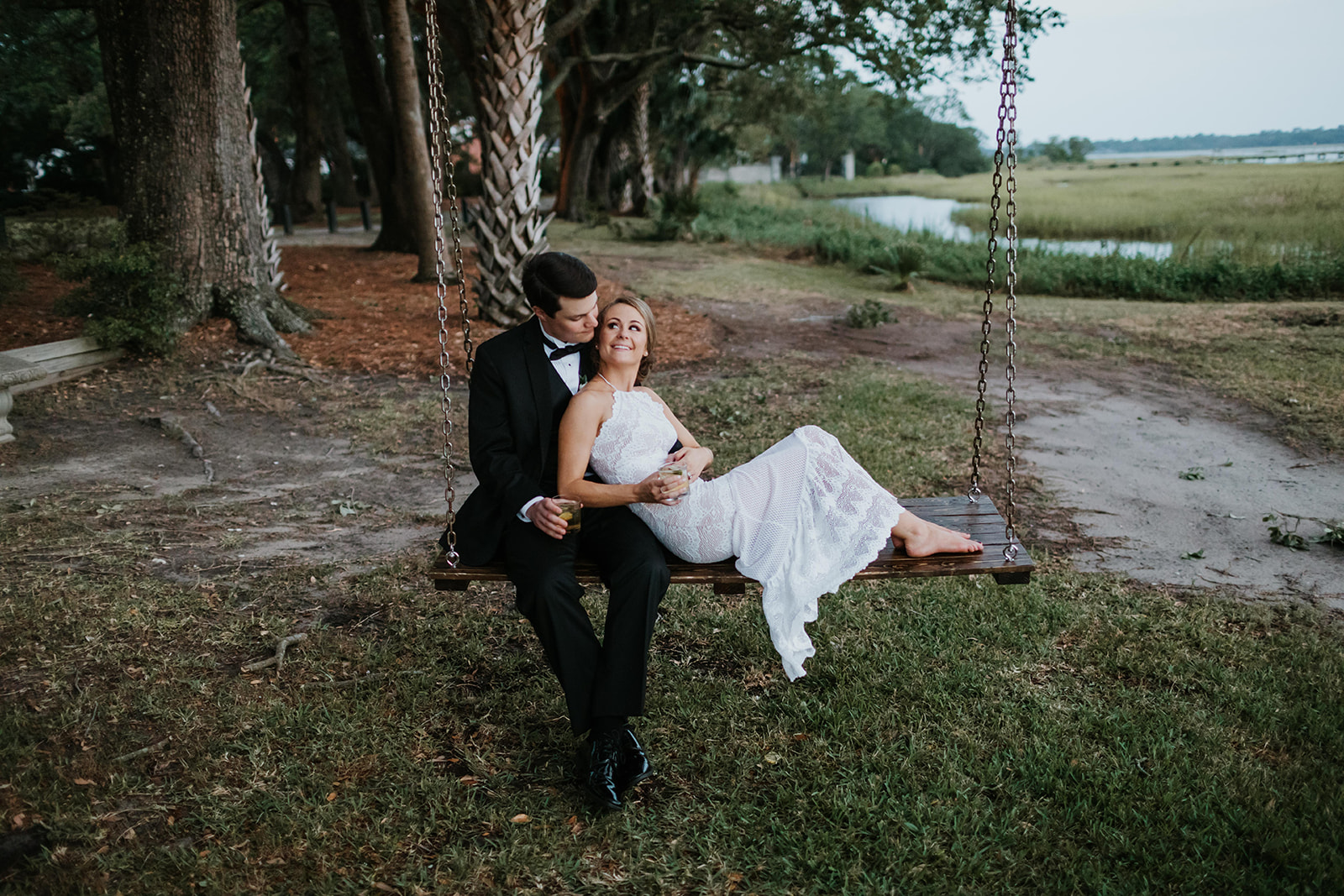Hi Gang,
If you’ve spent even one second thinking about having a wedding, then your wallet probably already hurts. Please remember the below amounts averages are based on surveys, not what YOU have set aside for your Charleston SC wedding celebration .Weddings these days are expensive—sometimes wildly so. In fact, a recent study by The Knot found the national average cost of a wedding rose to $35,329 in 2016 (up from $32,641 in 2015).
Why the major expense? The study attributes the rising cost of weddings to the fact that couples are increasingly interested in “wowing” their guests with unique experiences and adding personal touches to every facet of their big day. While they help make the wedding exceptionally memorable, these details can also add up.
Of course, not every wedding incurs the same expenses. A host of factors can affect how much the happy couple ultimately shells out for their big day. Where you live is a big one: The Knot study found the average New York City wedding costs $78,464, while the average Montana wedding costs a (relatively) measly $20,794.
The couples’ support system is another major factor. The average couple covers approximately 43 percent of the wedding expenses; the parents cover 55 percent; and other members of the couples’ support system contribute two percent.
The bottom line is that weddings are expensive, and they include tons of moving parts. Between navigating familial tensions and deciding on a color scheme, it can be hard to know just how much a wedding will actually cost. What is clear is that expenses quickly add up.
Many couples start with a budgeted number, then find that number becomes the lower end of the range. When it comes time to tally the total, it’s not rare for couples to have gone over their budget by a few thousand dollars. Nearly 50 percent of couples spend more on their weddings than they’d planned, and the vast majority end up regretting what they spent.
While there’s no guaranteed way to avoid all unexpected wedding costs, advanced planning can help you limit surprises when it’s time to add up your total bill. Here’s a rundown of the major cost considerations every couple should take into account, along with simple strategies for regulating expenses so you don’t keel over from sticker shock over your big day.
Charleston Wedding Planner Budgeting Right: Keep These Tips in Mind for Your Wedding
No matter the size of your wedding fund, research suggests you can expect to pay a certain percentage of your budget for each of the following categories:
- Reception: 48–50 percent
- Photography/videography: 10–12 percent
- Attire: 8–10 percent
- Flowers: 8–10 percent
- Entertainment/music: 8–10 percent
- Ceremony: 2–3 percent
- Stationery: 2–3 percent
- Wedding Rings: 2–3 percent
- Parking/transportation: 2–3 percent
- Gifts: 2–3 percent
- Miscellaneous: 8 percent
These percentages fluctuate a bit depending on your priorities. If you’re fine with sending a digital invitation but can’t imagine a ceremony and reception without a live band, for example, then you may end up paying less for stationery and more for music. No matter your priorities, a variety of strategies can help you regulate costs at every stage of the wedding planning process.
Stationery (Save the Dates, Invitations, and “Thank You” Notes)
Don’t forget to budget for every single piece that goes into each form of stationery. For example, stamps, the weight of your invitation, the type of paper you use, and the number of sheets stuffed into each envelope will all factor into the final cost.
Design to your budget.
The simpler your stationery, the less costly it will be. Minimalist designs, single-color text, white envelopes, and standard paper sizes are almost always less expensive. If you would like to splurge elsewhere, consider sending digital invitations.
Guests
Develop an estimate of how many guests will attend. A good rule of thumb is that 85 percent of in-town guests will show up, while 55 percent or more of out-of-towners will RSVP “yes.” While these numbers won’t be exact, they can give you a sense of how many people you’ll be responsible for feeding.
Consider cutting the guest list. Yes, it’s tough to do. But reducing the number of people at your wedding will help you save on everything from food and alcohol to stationery and table rentals. It’s one of the quickest ways to cut down on expenses if your budget is starting to get stretched.
Consolidate venue visits. Before signing a contract with a venue, most couples visit several potential locations to decide on the best fit. All that driving (or flying) and time can add up to money spent, especially if you have to take time off work. Save money during this stage by scheduling your venue visits on the same day or the same weekend. This way, you aren’t spending money on traveling to venues every weekend for months on end.
Consider the day and season. No matter where you live, most venues have a busy season and an off-season. If you’re willing, booking in the off-season can afford you significant discounts. Similarly, venues tend to charge more for weekend weddings than weekday ones. If you and your guests can swing a weekday wedding, this can be a simple way to stay on budget.
Know that time is money. The longer you’re at a venue on your wedding day, the more you’ll pay. Booking a venue for four hours instead of six, for example, can be a major money saver. This also applies to the time of day: A morning or afternoon affair is likely to cost less than an evening wedding.
Legalities
Remember that amidst all the romance of a wedding, there are legal matters to take care of. If you hire an officiant who’s legally capable of binding your marriage, expect to spend a few hundred dollars for their time. If you have a civil ceremony, you’ll still need to pay a (smaller) legal fee for your marriage license. There’s no getting around these fees, so it’s important to incorporate them into your budget.
Attire
Don’t get duped by dress costs. The average wedding dress may cost $1,564, but that doesn’t mean you have to spend that much. You can save by:
- Scouring Etsy or other online stores in lieu of expensive boutiques
- Attending a trunk show to score a designer dress for less
- Selling the dress after the big day
Choose accessories mindfully. Pocket squares, jewelry, fancy watches, scarves, boutonnieres, cufflinks, and more can all add to the cost of wedding attire. Scaling back on accessories can be a simple way to save some dough.
Decorations and Flowers
Know that no two flowers are alike. In-season and locally grown flowers are typically priced lower than those that need to be shipped from far-off locales. Talk to your florist to discuss pricing for different flower varieties along with other strategies for managing costs, such as limiting the number of flowers you use and incorporating greenery and non-floral items into your decorations.
Consider the number of tables. The more tables you have, the more centerpieces you need. Using larger tables or shrinking the guest list can be a simple way to make more room in your budget.
Go DIY. There’s something to be said for paying someone else to create decorations for you—it saves time and hassle. But if you’re trying to scale back, enlisting family and friends to help you make some or all of your decorations can be a great way to save.
Food and Drink (Including Cake)
Know that the more courses you include, the more money you pay. Scaling back from five to three courses or serving hors d’oeuvres in lieu of a main course can be easy cost-savers.
Reduce your cake costs. If you’re planning a larger wedding, consider purchasing a smaller, fancy cake for the ceremony and then serving guests from a sheet cake that’s the same flavor. That way you don’t have to shell out for multiple fancy cakes, but your guests still get delicious cake.
Know that cake frills come at a price. Fresh flowers are cheaper than sugar ones; ornate decorations are more expensive than minimalist designs; and unusual fillings are more expensive than good ol’ buttercream. Choose accordingly.
Be aware of alcohol pricing. Beer and wine are significantly cheaper than a full bar. Toasting with Prosecco is less costly than champagne. Fiddling with the alcohol list is an easy way to add some flexibility to your budget.
Photography and Music
Decide where your priorities lie. If it’s important to you to have a live band play at your wedding and reception, then by all means invest in one. Just know that live bands are more expensive than DJs, so this may mean you’ll need to cut back in another area to stay on budget. If you do hire a live band, there are still ways to save money, such as hiring a small group (as opposed to a large ensemble) or enlisting music majors from a local university.
Make sure you know exactly what’s included in your photography package. You’ll pay extras for things such as split frames and multiple exposures. If you want those effects, go for it—just make sure you pay for exactly what you want.
Staff
Beware of hidden fees. Cake delivery and set up, overtime costs for the photographer or venue manager, florist or hair and makeup trials, and service charges for servers, coat checkers, parking attendants, and so on are often left off wedding budgets and surprise couples. Before entering into a relationship with any vendor, make sure you know exactly what you’ll be expected to pay.
Budget for gratuities. A huge range of vendors—including servers, stylists, bathroom attendants, hotel staff, and others—earn gratuities for their role in your big day. All told, tips can add up to hundreds of dollars, so make sure you factor these into your budget.
No matter how much money you plan to spend on your wedding, you can avoid financial stresses by keeping careful track of your expenditures and building in a contingency budget for the unexpected costs that will inevitably crop up. It’s also helpful to charge all of your wedding expenses to a credit card that rewards you with mileage, points, or cash back—this way, you can help defray the costs of a romantic honeymoon with your dearly beloved.
After all that wedding planning, you’re going to need it!
Happy Beginnings,
Mike






